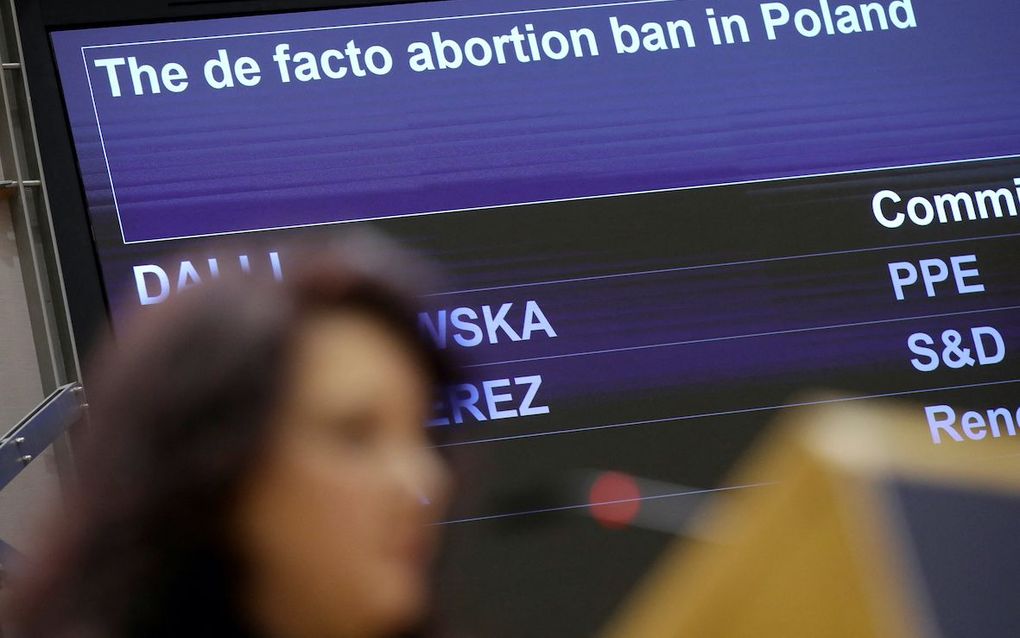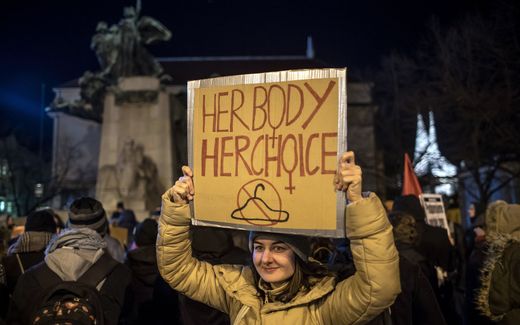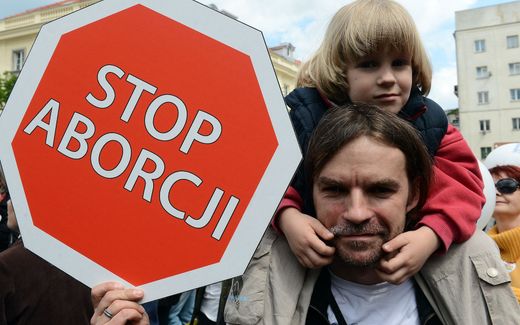EP debate on Polish abortion shows political battle around women’s rights

Commissioner Helena Dalli in the European Parliament during a debate about abortion in Poland. Photo AFP, Oliver Hoslet
Central Europe
A European Parliament debate about abortion in Poland Wednesday evening resulted in the same clashing views as usually: the child’s right against the woman’s right.
Robert Biedron, MEP for The Left, is quoted by The First News saying that Poland has legalised “government-led torture”, he said. “Poland has in reality become a patriarchal religious state in which Polish women (…) are deprived of a voice and are reduced to the role of an incubator. This is terrifying barbarism and government-led torture.”
But this was not the only voice in the debate. The pro-life vision came from MEP Izabela-Helena Kloc, from the ruling PiS party in Poland. “Over the course of this year, many children were born in Poland who would not have had this chance two years ago”, she is quoted by The First News as well. In a couple of years, these children will say: “Mother, I love you and thank you for being here. Thank you for giving me life.”
The Dutch MEP Bert-Jan Ruissen stated that abortion “remains a murder of a living being that cannot defend itself. Abortion is no human right.”
Gender-based violence
Before the debate, fourteen human rights organisations came together with a call to lift the abortion ban. For “pregnant people”, it is complicated to access legal abortions, Human Rights Watch writes in a declaration. The whole legislation leads to “incalculable harm to women” and is a form of “gender-based violence.”
According to human rights organisations, there has been a strong need for women to travel abroad for an abortion. Abortion without Borders is said to have been contacted by 17,000 women in Poland over the last six months.
The debate was held because it’s a year this week that the Constitutional Tribunal decided to a “practical ban” on abortion, in the words of EU Commissioner Helena Dalli. Terminations of pregnancies resulting from rape and those threatening the life of women are still formally legal. Abortions on the grounds of abnormalities of the child are no longer possible.
History as an economic bloc
With its history as an economic bloc, the current view within the European Union is that abortion remains a national issue. Over the decades, abortion has never been a condition to enter the EU.
The point is that there are two developments in the EU now. On the one hand is Poland, where the strict rules even have become more stringent. But on the other hand, there is a growing expectation of recognising abortion as a fundamental human right (or a women’s right). These two courses clashed in the debate on Wednesday and are impossible to reconcile.
Questions around impartiality
The debate on abortion is part of much broader tensions around Poland. Earlier this month, the Polish Constitutional Tribunal ruled that parts of the EU law are not compatible with the Polish Constitution. The principle of national sovereignty brings that the EU cannot have the last word in issues. Over the previous years, there were questions around the impartiality of the Constitutional Tribunal in Poland. Some fear that the nationalist government has a direct influence on the appointment of judges.
EU Commission President Ursula von der Leyen warned this week in the EP that this is a “direct challenge to the unity of the European legal order. This is the first time ever that a court of a member state finds that the EU Treaties are incompatible with the national constitution.”
In the same debate on Tuesday, the Polish prime minister Morawiecki answered that the EU was overstepping its authority: “If you want to make Europe into a nationless superstate, first gain the consent of all European countries and societies for this”, he said. “I will repeat once again: The supreme law of the Republic of Poland is the constitution.”
Same rights everywhere
Suppose Poland does not respect rulings of the European Court of Justice (ECJ) in Luxemburg. In that case, this could undermine the functioning of the EU as a trading bloc since economic partners from various countries do not know where to get legal protection from. Therefore, Mrs Von der Leyen said: “If European law is applied differently in Göttingen or Gdansk, EU citizens would not be able to rely on the same rights everywhere.”
This topic will therefore be tabled during the EU Summit on Thursday. Some member states have stated that Poland should not get the Covid-19 economic recovery plan funds until it recognises the ECJ rulings.
Related Articles





